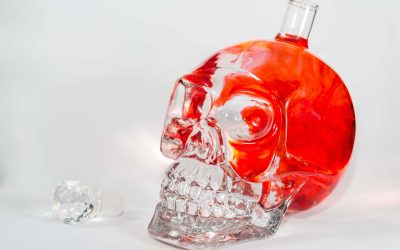Hypertensive people taking anticoagulants should actively avoid alcohol as it may cause bleeding in the brain due to its effect on clotting and blood pressure. Moderation in the consumption of alcohol is key to a healthy heart. Since Eliquis can also cause bleeding, drinking alcohol while taking Eliquis may further https://ecosoberhouse.com/ increase your risk of bleeding. Before having any spinal procedures done, tell your doctor that you’re taking Eliquis. They may recommend scheduling your procedure when you’ll have the least amount of Eliquis in your body. If you take a blood thinner, be sure to follow your health care provider’s advice on dosing.
- The possible result of the concomitant use of blood thinners and alcohol has always been uncertain.
- They may be able to recommend ways to treat this side effect.
- Research suggests drinking alcohol may thin the blood by affecting platelets, which are the parts of blood that initiate coagulation, or clotting.
They can also increase your risk of bleeding and the amount of time you bleed. Too much alcohol can contribute to many diseases of organs such as the liver, heart, and pancreas and is a factor in developing heart disease. Consuming more than two servings of alcohol every day can increase the risk blood thinners and alcohol of developing blood clots. Blood thinners are a category of medication that helps prevent the formation of blood clots within the bloodstream, a process known as hemostasis. Depending on the location in the body and whether the clot blocks blood vessels, a thrombosis can be life threatening.
Most popular in Drugs
The information on this site should not be used as a substitute for professional medical care or advice. Contact a health care provider if you have questions about your health. Finally, your medical history also affects if blood thinners are right for you. Some of the medical conditions or situations that might prevent you from taking blood thinners are recent surgery or a history of intracranial hemorrhage (brain bleed).
They will consider the state of your health and the medications you take. They may be able to advise you on how often and how much alcohol you can consume safely. For example, a blood clot can form elsewhere in the body and travel to the heart, lungs, or brain.
What are the side effects of Eliquis?
We may be paid a fee for marketing or advertising by organizations that can assist with treating people with substance use disorders. Our addiction treatment specialists are here to assist you in verifying your insurance coverage. When you call our team, you will speak to a Recovery Advocate who will answer any questions and perform a pre-assessment to determine your eligibility for treatment. If eligible, we will create a treatment plan tailored to your specific needs.
- For more information about this side effect, talk with your doctor or pharmacist.
- They’ll likely recommend a medication other than Eliquis for your condition.
- The review authors highlighted that previous research has suggested drinking significant amounts of alcohol every day has links to a higher risk of developing high blood pressure.
- Doctors believe booze disrupts your heart’s natural pacemaker — the electrical signals that are supposed to keep it beating at the right pace.
- The liver produces this protein, which plays an important role in controlling blood flow and promoting blood clotting.
If your liver is busy working hard removing the alcohol instead of your blood thinner, the level of the drug in your blood will go up and raise your bleeding risk. When you get hurt, blood cells called platelets gather at the injury site and form a blood clot. These cells are sticky, and they form clumps creating a plug. Clotting factors are also released from platelets that help form a mesh to form the plug to close the wound.
Is it safe to drink alcohol while taking blood thinners?
It’s important to tell all your health care professionals that you are taking warfarin. If you are having surgery, dental work or other medical procedures, you may need to stop taking warfarin. A woman who becomes pregnant or plans to become pregnant while taking warfarin should immediately notify her health care professional. If you have the following signs of bleeding, you should immediately call 911 or your health care professional. Never increase or decrease your dose unless told to do so by your health care professional.

However, not all blood thinners are affected by the same substances. It’s important to speak with your doctor or cardiologist about your diet and how it may impact the effectiveness of your medication. Check with your health care professional if you plan to travel. While traveling, it’s important to always carry your medication with you. Other medications in this category include Xarelto (rivaroxaban), Savaysa (edoxaban), and Arixtra (fondaparinux).
Wear Medical Identification
Discuss with your doctor which types of exercise may be best for you. The presence of blood thinners in your system can increase your chance of internal bleeding after an injury. Go to the hospital immediately if you experience any of these side effects after falling or bumping your head — even if you don’t have external bleeding. The goal of warfarin therapy is to decrease the clotting tendency of blood, not to prevent clotting completely. The effect of warfarin must be monitored carefully with blood testing. Based on the results of the blood test, your daily dose of warfarin will be adjusted to keep your clotting time within a target range.
